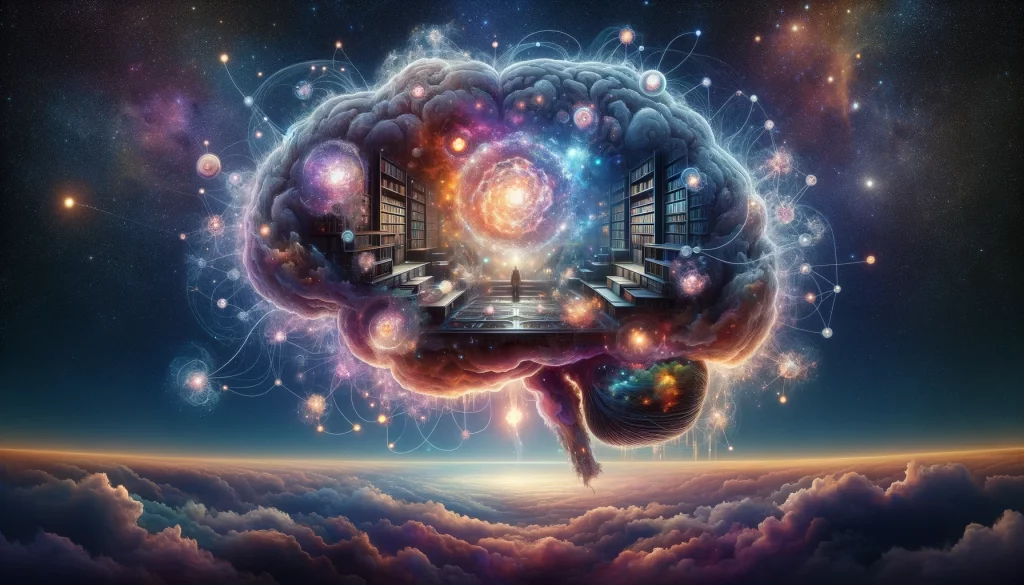Think for just a minute sitting on the edge of an immense landscape in the collective mind, in which the boundary between memory and reality blurs. This is the place where the Mandela Effect, a mysterious error in our perception of history and its details, straddles the edges of the unfathomable and the scientifically fascinating. The Mandela Effect isn’t just an illusion of the mind but is a portal into the tangled web of our memories where myth is interspersed with reality, and where shared beliefs challenge the truth of the past.
Introduction to the Mandela Effect
So what is the Mandela Effect and when did the Mandela Effect start? Its root lies in a peculiar convergence of memories and misinformation which is when groups of people recall events or specific details in a different way than how they actually recorded. The term itself originates from an erroneous perception of Nelson Mandela, the South African anti-apartheid kingmaker. Contrary to the actual events that led to his demise in 2013, substantial amount of people remembered his imprisonment in the 1980s. Fiona Broome, a researcher who was the first to notice this group’s mistaken memory, coined the term “Mandela Effect” after discovering that she, like others, had the false memories. According to Psychology Today, this phenomenon has sparked worldwide interest, pushing the limits of our knowledge of collective recall and memory.
Psychological Explanation of the Mandela Effect

In the deepest parts of Mandela Effect, cognitive psychology provides a way to understand. Memories are not accurate snapshots of our lives. They are dynamic and flexible objects that are shaped by our experiences as well as social interactions, and the continuous flow of information. The process of recalling information is similar to rewriting an entire story, and each story can be retold with alterations or additions, as noted by Scientific American. The process of rewriting, although an indication of the brain’s ability to adapt, exposes our memories to errors and distortions.
Examples of the Mandela Effect
Through popular culture and narratives of the past, The Mandela Effect has manifested in astonishing and intriguing ways that make us question the authenticity of our own memories.
- Pop Culture: Among many the Mandela Effect examples that pop up, it is the Berenstain Bears phenomenon stands out. The majority of the population remembers the title of the beloved children’s series in the form of “Berenstein,” a discrepancy that continues to confuse and enthrall. In the same way, the famous phrase of “Star Wars,” “No, I am your father,” is often mistakenly interpreted in the form of “Luke, I am your father,” which reveals how our collective memory can drift away from the truth, highlights BBC Future.
- Historical Events and Public Figures: The Mandela Effect extends beyond pop culture to encompass historical events and individuals. Assassination and murder of Martin Luther King Jr. is another instance of widespread confusion. Despite historical documents saying that he was killed by a rifle, a lot of people recall that the weapon was a handgun. Another popular misconception concerns the presidentship of George Washington, with some saying that there were many presidents prior to him, despite his being regarded as the first. These historical inaccuracies are documented by History.com, underscoring how the Mandela Effect can alter our perception of significant events and figures.
These cases highlight not only the inflexibility and ambiguity of human memory, but also how shared narratives may differ significantly from the documented historical record. Mandela Effect serves as a mirror that reflects the complicated interaction between individual memories and collective memories, as well as changing our perception of the past.
As we weave through the complex web that is the Mandela Effect, we find ourselves at the intersection of mythology, memory and a mysterious phenomenon. It’s a powerful reminds us about the power and influence of group beliefs and the flexibility of memory, prompting us to rethink the stories we take for granted as true. When we begin to dig deeper into the nature of this phenomenon, we set off on a journey of discovery to uncover the mystery of human cognition and the myths of our collective that define our common reality. Through this investigation, the Mandela Effect not only captivates our curiosity but also enriches our comprehension of the human condition and the stories that unite us across time and space.
What Causes the Mandela Effect?
American Psychological Association claims the origins that are the basis of Mandela Effect are as complex as they are captivating, interspersing the psychology of cognitive science, social dynamics and influences from culture. The underlying cause of this phenomenon is attributable to the way that our brains encode as well as store and retrieve data. Confabulation, misinformation and impact of media play an important role. Misinformation effects occur when the recall of our memories that are episodic becomes less precise due to information that is post-event, while confabulation enlarges the gaps in our memories with claims that people believe to be factual. Furthermore, the nature of collectives of human societies, where the information and stories are shared and disseminated quickly, particularly with the advent that is the web, magnifies these personal memory distortions into an epidemic. The digital age with its incessant flow of information and platforms that relay the thoughts of our minds back is a great source of inspiration to the Mandela Effect, nurturing collective false memories and making them more prevalent than they ever were.
How to Recognize and Treat False Memories

Recognizing and reducing the influence of false memories requires both consciousness and critical thought. As individuals and collective realizing the difference between what we remember and what is actually remembered is crucial to navigate the complexity that is the Mandela Effect and its implications on our perception of reality.
Distinguishing Between Fact and False Memory
Differentiating between true and false memory requires an amalgamation of doubt, verification, and conscious utilization of reliable sources. Methods to verify memories include checking facts against reliable sources of information, participating in conversations with other people to discuss different perspectives and ensuring that you are aware of the cognitive biases which affect memory recall. The Conversation’s source also claims that social media and the internet are often the triggers for the propagation memory distortion, could also be tools of confirmation when used with care. The key is seeking for reliable and diverse sources of information that can refute and enhance our perceptions. It’s also important to find sources that challenge and refine our memories. Understanding the impact of cognitive biases as well as the effect of misinformation on the internet is essential for navigating the online world and protecting against the encroachment from false memory into our knowledge about the past.
Conclusion
The Mandela Effect, a mesmerizing mixture of myth, memory and phenomena, prompts us to rethink the credibility of our memories as well as the stories that define our perception of the world. Based on the intricate nature of human cognition and amplified by the dynamics of our social and cultural context, the phenomenon exposes the mutable nature of memory as well as the influence of external influences on the perception of what we see as reality. In understanding the root reasons behind this phenomenon Mandela Effect and employing strategies to differentiate between truth and false memories it is possible to navigate the complexities of our minds like all the spaces shared by our memory. In our exploration of the depths of our human consciousness and the complexities of collective memory and memory, the Mandela Effect stands as a striking reminder of the ability of memory to connect us and sway us. When we embrace both the challenges and opportunities offered through this phenomena, we will be able to improve the understanding we have of ourselves as well as our surroundings, paving an avenue towards an informed and more nuanced interaction with the past.







